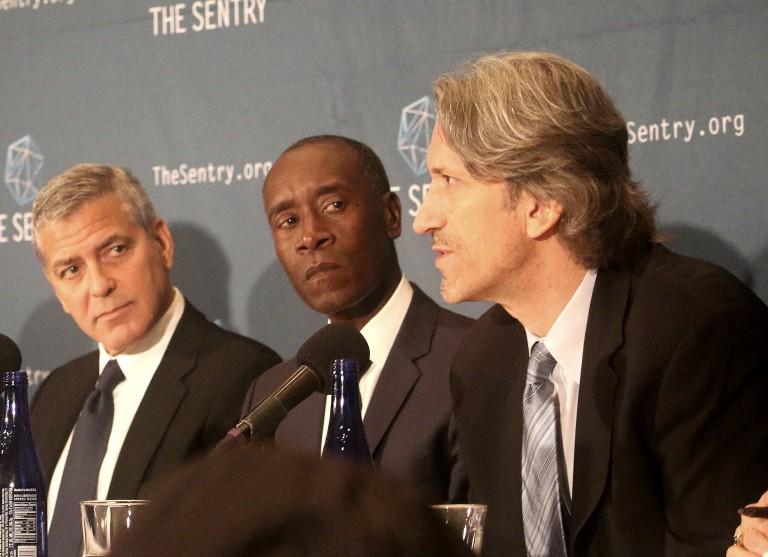WASHINGTON—The peace agreement between the warring factions in the world’s newest nation, South Sudan, has been an abject failure, as war crimes, extreme violence, destruction, near famine, and looting persist.
A new report by The Sentry—an investigative initiative co-founded by actor George Clooney and African issues expert John Prendergast—may explain the reason for the failure. An investigation into the assets of the rival leaders of South Sudan, President Salva Kiir and former Vice President Riek Machar and their respective families and their top generals and government officials, reveal in detail how they benefit from massive corruption and war profiteering.
The report also sketches a way the U.S. government and the international community could alter the risk calculations of the kleptocrats and their enablers so that they are incentivized to turn away from violence, atrocities, and corruption.
On Sept. 12 at the National Press Club in Washington, D.C., Clooney and Prendergast joined by actor Don Cheadle and the lead investigators of The Sentry, made a public statement and released a 65-page report, titled, “War Crimes Shouldn’t Pay: Stopping the Looting and Destruction of South Sudan.”
It accuses Kiir and Muchar and their inner circles of accumulating fortunes by “fueling and exploiting a brutal civil war while their nation suffers famine-like conditions and the horrors of armed conflict, including mass rape, the burning of villages, and the use of child soldiers,” states their opening statement.




